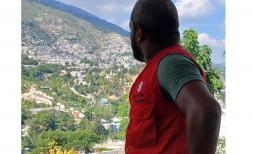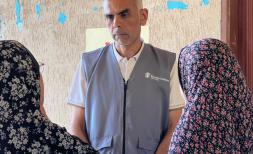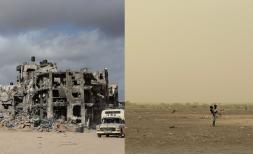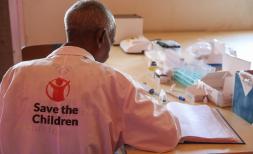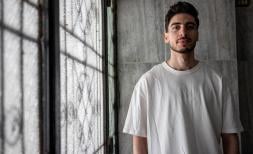COVID-19: FIGHTING AN INVISIBLE ENEMY IN THE WORLD’S LARGEST REFUGEE CAMP
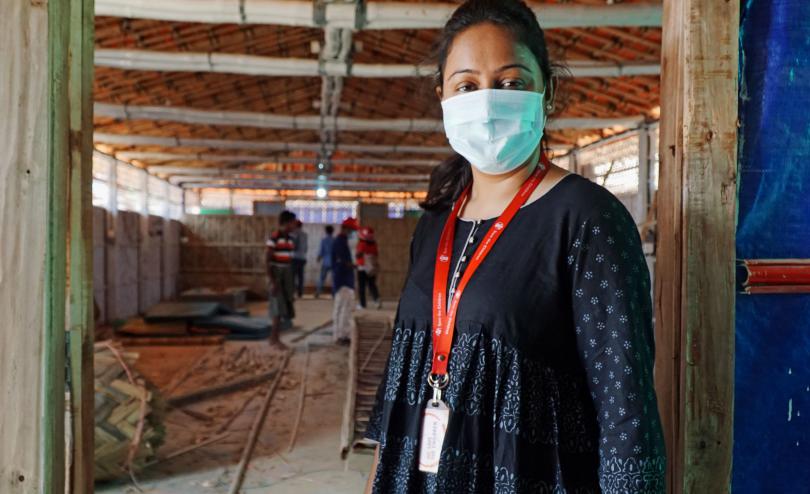
Dr. Ishaat Nabila has worked as a Medical Doctor for Save the Children’s Rohingya Response Health programme since 2017. She is the clinical lead for Save the Children’s Isolation and Treatment Centre for the COVID-19 response.
The camps in Bangladesh, which are home to more than 855,000 Rohingya refugees, are the perfect environment for the virus to spread like wildfire.
It’s not uncommon for several families to live crammed together in small shelters made from bamboo and tarpaulins. Social distancing, self-isolation and regular handwashing are a luxury few can practice.
Health facilities in the camps are also very basic. As a doctor working for Save the Children, I see the daily struggle health workers face in the fight against this deadly virus.
Without internet access, rumours and fear grow.
Mobile data and internet have been cut off for Rohingya refugees, which means people have very limited access to information about the coronavirus and its devastating consequences.
Rumours and fear swirl around the camps. People are scared that if they are tested for COVID-19, they will be taken away from their families. Women believe that when they give birth, their babies will be removed from their care. People also think health workers are the source of infection and that we are a threat to the community.
I have seen families reluctant to wear masks and others who ignore social distancing. Some believe wearing a mask is unnecessary because Allah will protect them.
These rumours mean people are not coming forward if they feel unwell, potentially fuelling the spread of the disease.
Save the Children has teams of health workers and volunteers moving around the camps on a daily basis providing information, but it isn’t enough. It’s essential that mobile data and internet access are reinstated as quickly as possible.
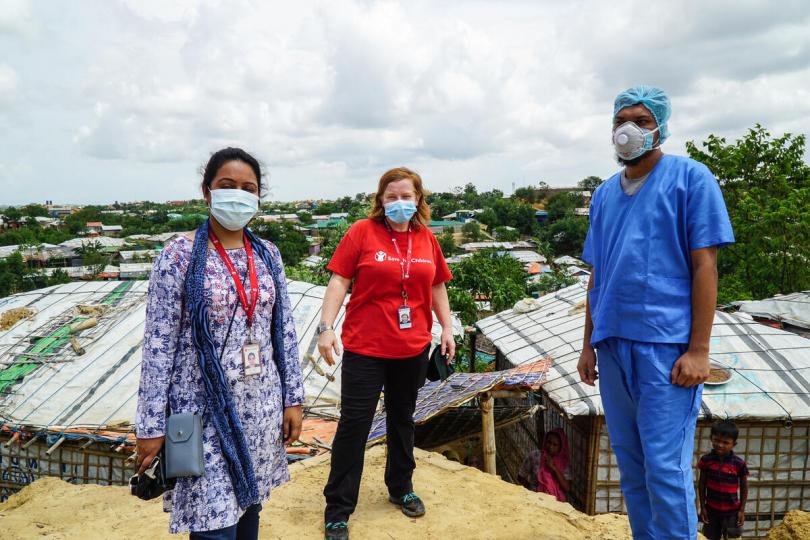
Dr Nabila (left) and Rachael Cummings (middle) and Rasadul Hasan (right) are working on the COVID-19 response in Cox's Bazar.
Health workers are scared too
Life under coronavirus has changed so quickly, not just for the Rohingya community, but for health workers too.
This is the first time for me as a doctor where I’m treating patients who have a new disease that I have not studied before. My parents are afraid of the pandemic and call me every day to ask if I’m wearing a mask and tell me to practice social distancing.
The health workers in my team are under a lot of stress. They are frightened and the personal protective equipment we wear each day is suffocating in the heat and we are exhausted by the end of our shifts.
We have people coming to our health facilities every day with flu-like symptoms and it’s sometimes difficult to isolate them as other patients don’t understand the dangers and the need for social distancing and wearing masks.
Many medical staff around the world have contracted COVID-19, and while we are doing everything we can to protect ourselves, there is always a lingering threat one – or many – of us will fall ill.
I tell my team to keep maintaining high levels of infection prevention and control and to wear personal protective equipment to protect themselves and our patients. But most of all I tell them to work with courage.
Continuing life-saving health services
As a doctor seeing how COVID-19 has ravaged other communities around the world who have strong health systems, I fear the worst is yet to come for the Rohingya and host communities in Cox’s Bazar. Yet, despite all the challenges, Save the Children’s health teams continue to return to the camps each day.
We know children are the most vulnerable during a pandemic and we need to do everything we can to protect them.
In addition to the COVID-19 threat, routine vaccinations for children under two have dropped in the camps over the past three months – because families are reluctant to come to health facilities – and this puts children at risk of being infected with diseases such as measles, diphtheria, tuberculosis, tetanus, polio, pneumonia.
We are prioritising healthcare for children and continuing routine vaccinations in camps to ensure children remain safe from communicable diseases, as well as giving pregnant women a safe place to deliver their baby and access care in the days and weeks following the birth.
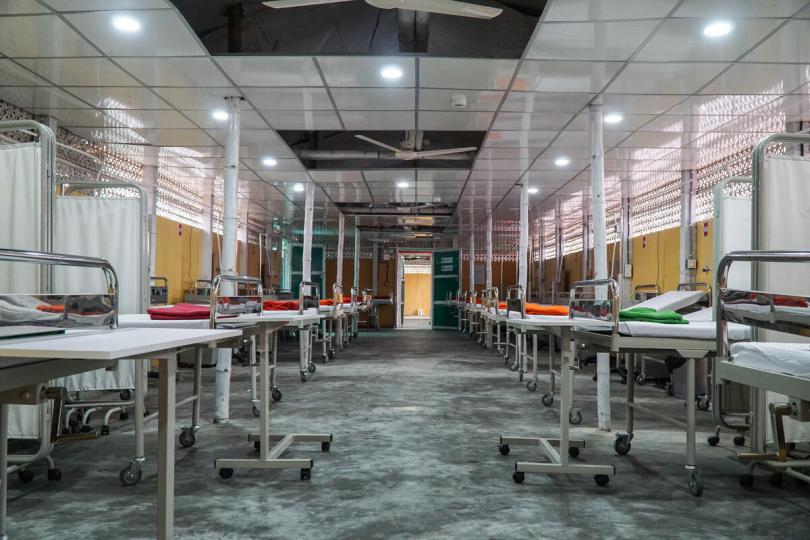
Save the Children's COVID-19 isolation and treatment centre in Cox's Bazar, Bangladesh.
Save the Children has also set up a COVID-19 isolation and treatment centre to provide care for suspected and confirmed COVID-19 patients from the Rohingya and host communities. And our teams of community health workers are helping families to care for mild cases in their homes.
We are on the ground ensuring children are safe, protected and learning.
To support Save the Children’s global COVID-19 emergency appeal, click here.
